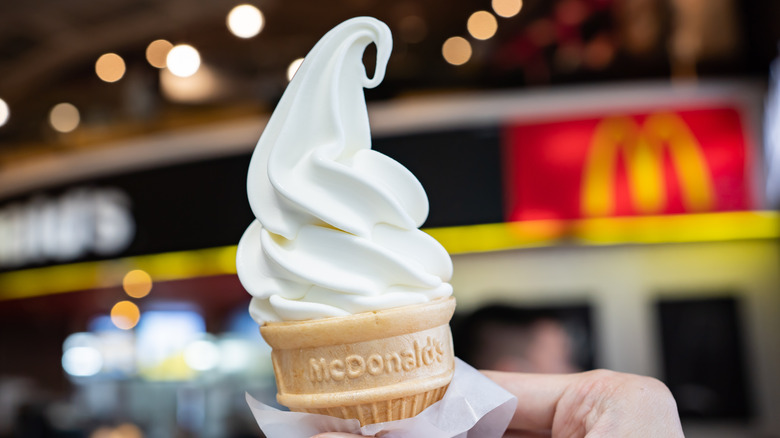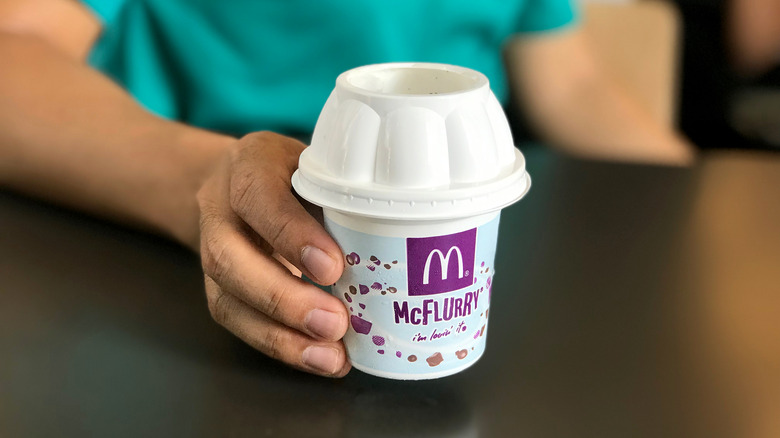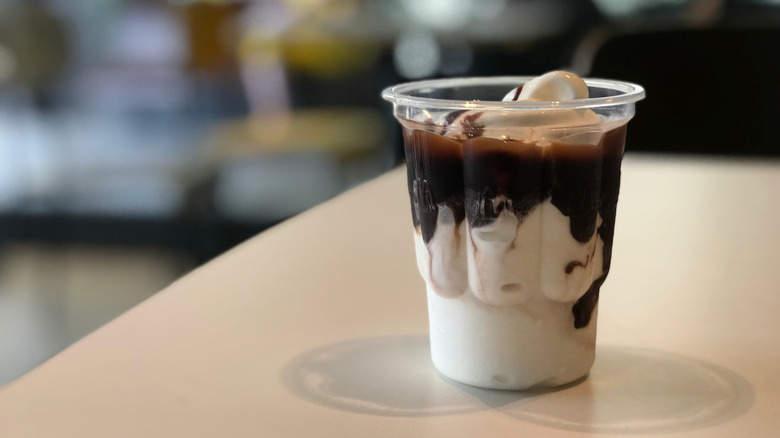The McDonald's Ice Cream Machine Drama Just Escalated
If you've read even just a little bit of the online discourse about the fast food giant, you're familiar with the joke that McDonald's ice cream machines always seem to be broken. (As it turns out, this is more than a humorous exaggeration: Recently, Jack in the Box took aim at McDonald's by creating a McBroken.com website that tracks the chain's out-of-order ice cream machines in real time.) For many customers who have just devoured a Big Mac and World Famous Fries, the broken promise that there will be McFlurry as a sweet ending makes for an un-Happy Meal.
Many McDonald's guests wonder why there isn't an easy fix to get the machines churning again. Actually, there is, but it has caused more controversy than a little kid dropping her ice cream cone on a hot day. A startup company called Kytch sought to be McDonalds' ice cream machine savior by introducing a device to help repair its broken soft-serve makers, per Food & Wine. Unfortunately, this invention has caused a legal battle that will require a serious chisel to chip away at its many frozen layers.
The legal battle has been brewing for years
In 2019, two-person tech startup Kytch began selling a small gadget that could diagnose the problems behind broken McDonald's ice cream machines, manufactured by a company called Taylor. As reported by Wired, the Kytch device could "intercept the ice cream machines' internal communications," and report any issues remotely. However, McDonald's was not happy about this third-party device listening to its frozen conversation. But, like the best ice cream that is full of mix-ins, it is not just one component that completes the story.
Over the past several years, tension has been brewing between Kytch, Taylor, and McDonald's, and even the Federal Trade Commission has investigated the situation. Things became more serious when Kytch filed a lawsuit against Taylor last summer, according to Food & Wine, accusing the manufacturer of trying to steal Kytch's technology. In January, newly revealed emails intensified the lawsuit: They showed that Taylor encouraged McDonald's locations to remove Kytch devices from their ice cream machines, suggesting they were unsafe to use. The back-and-forth is worthy of an Emmy Award-winning drama. But, there is a legal issue at the heart of the claims. Did McDonald's and Taylor use their influence to make false claims against Kytch and in turn cause irreparable harm to its business?
The overarching question behind Kytch's lawsuit against McDonald's
This week, according to Wired, Kytch sued McDonald's, claiming that the defendant used "false advertising and tortious interference in its contracts with customers." While those legal terms are clear for anyone who has gone beyond the first year of law school, it can be boiled down to McDonald's interfering with Kytch's ability to do business by making false claims about its product. Moreover, the startup is "asking for no less than $900 million in damages," alleging that the fast food chain has "tarnished" the Kytch name because it "did not want Kytch to gain traction in the market" (via Food & Wine).
While the lawsuit claims seven causes of action and seeks various forms of relief, there is a bigger issue bubbling under the surface. Putting aside all the jokes about ice cream machines, the overarching question comes down to: Can a major company have undue influence over another company that it finds threatening? Even if that idea isn't the headline, it is the thought to ponder.


